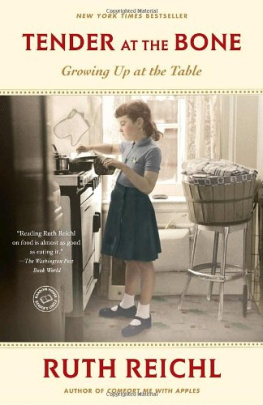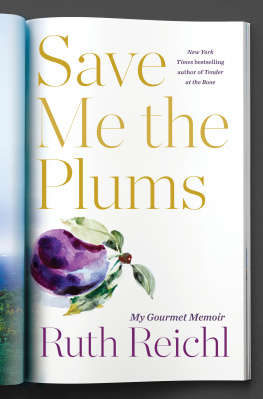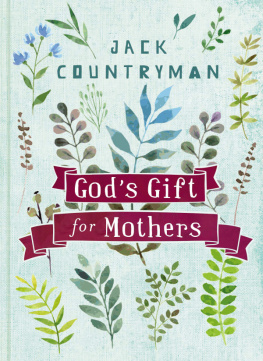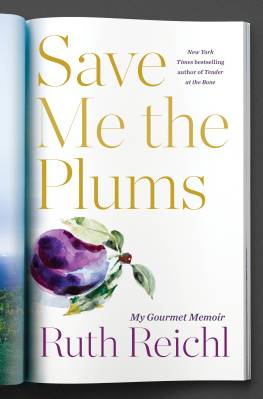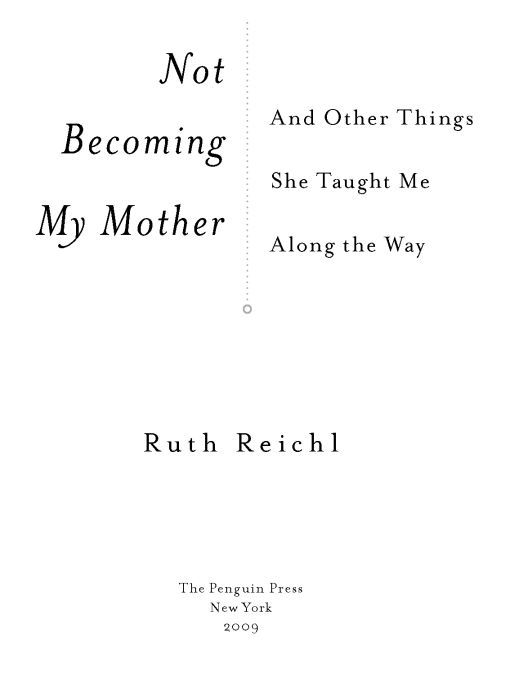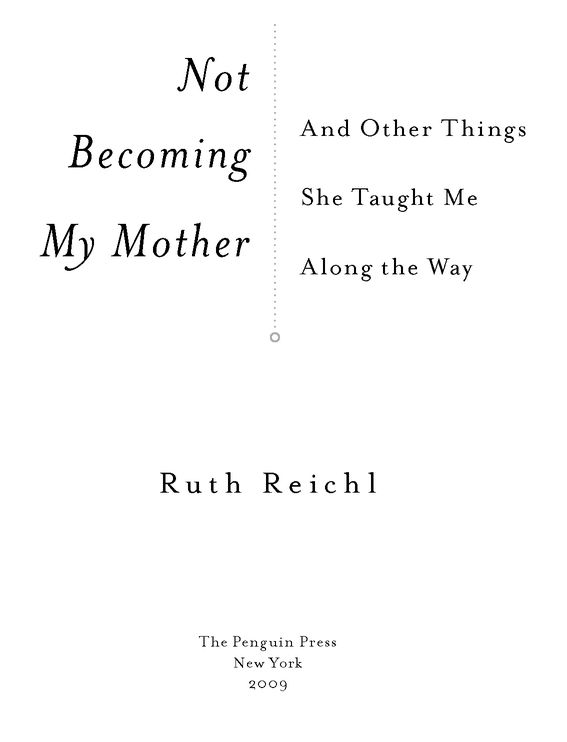Table of Contents
Also by Ruth Reichl
Garlic and Sapphires
Comfort Me with Apples
Tender at the Bone
For you, Mom. Finally.
The Mim Tales
My mothers name was Miriam, but most people called her Mim. She was such a character that as a child I developed a special form of literature; it was known as the Mim Tale. This is one of my favorites.
Hurry up, hurry up, my mother is shouting as she races through our small apartment, were going to be late again!
This is nothing new; my mother is incapable of arriving anywhere on time. But she has just become the leader of my Brownie troop, and the powers that be have emphasized the importance of punctuality. She grabs a red hat, crams it onto her head, and dashes for the door. I am right behind her. Just as the door begins to close Mom shouts, Oh, no, I forgot the snack!
Mom, I moan. You cant forget the snack again. You forgot it last week.
Dont be fresh! she snaps, inserting herself into the arc of the closing door. We have no time to shop. Come back in and help me find something delicious.
We dont have anything, I say flatly.
Nonsense, she says, striding to the refrigerator. She surveys the contents with a gimlet eye and gingerly extracts a bowl. It is covered with bright blue fuzz, but she carefully scrapes this off, murmuring, This must be that chocolate pudding I made last month. She pokes in a finger, tastes tentatively and says triumphantly, What a good start!
Theres not very much, I say hopefully. I am aware that any mention of the puddings antique character will be unwelcome; my mother is a firm believer in the benign nature of mold. Its not enough for all of us.
I know that! she says crossly. Were going to stretch it. See what you can find in the cupboard.
Like what? I ask dubiously.
Oh, use your imagination, she snaps.
I climb onto the stove so I can reach the cupboard, give the door, which sticks a bit, a firm yank and peer inside. I pull out a box of pretzels, a few prunes, a bag of very stale marshmallows and a jar of strawberry jam. Perfect! says Mom. Hand them down here. Anything else?
Feeling it would be unwise to mention the sardines or the tin of liver pt, I pass on to the can of peaches. Good, says Mom, give me that too.
As I watch, Mom mixes the jam into the not very moldy chocolate pudding and adds the prunes. Break those pretzels into little pieces, she commands, while I chop up the marshmallows and slice the peaches. This is going to be delicious!
Three minutes later she is wiping her hands. Lets go, she says.
Arent you taking plates? I ask. We cant just use our fingers.
Mom sticks a dozen soupspoons in her pocket and cries merrily, The girls will think its such fun to eat right out of the bowl!
I am dubious about this, but to my surprise, they do. While my best friend, Jeanie, and I stick our spoons ostentatiously in and out, consuming nothing, the rest of the girls happily gobble up the goop. Mrs. Reichl, says Nancy Feld, a dreadful little toady of a child, youre such a wonderful cook. Could you give the recipe to my mother?
Mom rewards her with a queenly smile. Call me Mim, dear, she says, but I couldnt do that; the recipe is an old family secret. And then she turns to me and whispers triumphantly, See, I told you. A little mold never hurt anyone!
Ive got Mim Tales by the dozen, and Ive used them for years to entertain my friends. As a writer Ive always known how lucky I was to have so much material, and my first book opened with Mom accidentally poisoning a couple of dozen people at a party. After the book was published people kept asking, Did she really do those things?
She did. But that doesnt mean she wanted the world to know about it. Telling stories to your friends is one thing, but a book is quite another, and I would never have written it while she was still alive. Although I omitted the most embarrassing tales, the first time I held the printed book in my hands I winced. I could not keep from thinking that I had betrayed my mother. It was not a good feeling, and I wanted to make it up to her.
I knew that there was a box filled with Moms diaries and letters, and I was determined to try and find it. She had always wanted to write a book about her life, and I thought that I should do it for her. I owed her that much.
But when I couldnt find the box I dropped the project, going on to write a second memoir, and then a third, each time getting deeper into my mothers debt. Some day, I kept saying, Ill write Moms book.
Then last year, on what would have been her hundredth birthday, I sat down to write one of those speeches in which people traditionally thank their mothers. I scribbled words unthinkingly, but when I looked down at the page I found that I had written something like a Mim Tale. But this was in a different voice, more hers than mine, and it was finally telling her side of the story.
My mother would have been one hundred years old today, the speech began. And so Ive been thinking about her, and how she helped me to become the person that I am.
She did not do it any of the ordinary ways. She was not a great writer, or a great businesswoman, or even, if truth be told, a particularly good mother. I think she tried to be a good wife, but she wasnt much at keeping house, and I dont think Ive ever met anyone who was a worse cook.
But my mother was a great example of everything I didnt want to be, and to this day I wake up every morning grateful that Im not her. Grateful, in fact, not to be any of the women of her generation, who were unlucky enough to have been born at what seems to me to have been the worst possible time to have been a middle-class American woman.
When my mother was five she answered the telephone by saying this: How often are the pains coming? Little wonder, then, that she wanted to go to medical school and become a doctor like her father. But when she announced this to her parents they looked her up and down and said, Youre no beauty, and its too bad that youre such an intellectual. But if you become a doctor no man will ever marry you. So Mom got a PhD in musicology. The family was musical; her mother would later become an impresario, the Sol Hurok of Cleveland.
My grandmother was, by everybodys estimation, a formidable businesswoman. She brought great musicians to Cleveland, she started a lecture series, and Mom said she could look at any theater and count the house in a second. But when the hard times ended, my grandmother folded her business. As she later explained, her work was just a stop-gap measure, her way of helping out when money was scarce. Good women didnt work if they didnt have to; it would only humiliate their husbands and make the world think their men were incapable of supporting them.
So Mom took her degree and opened a bookshop; it was a ladylike profession, and although it was not the medical career that she had yearned for, it made her happy. She did marry, but not until she was almost thirty, late enough that the word spinster was being whispered behind her back. And sure enough, after the wedding everyone expected her to settle down, leave her shop behind and have babies.



